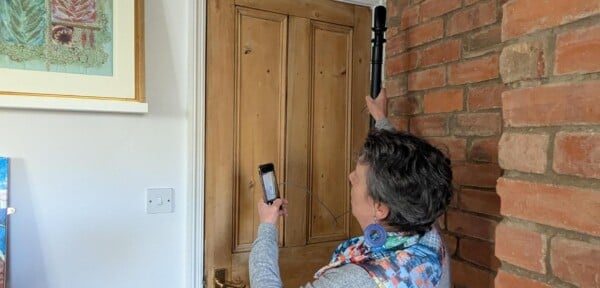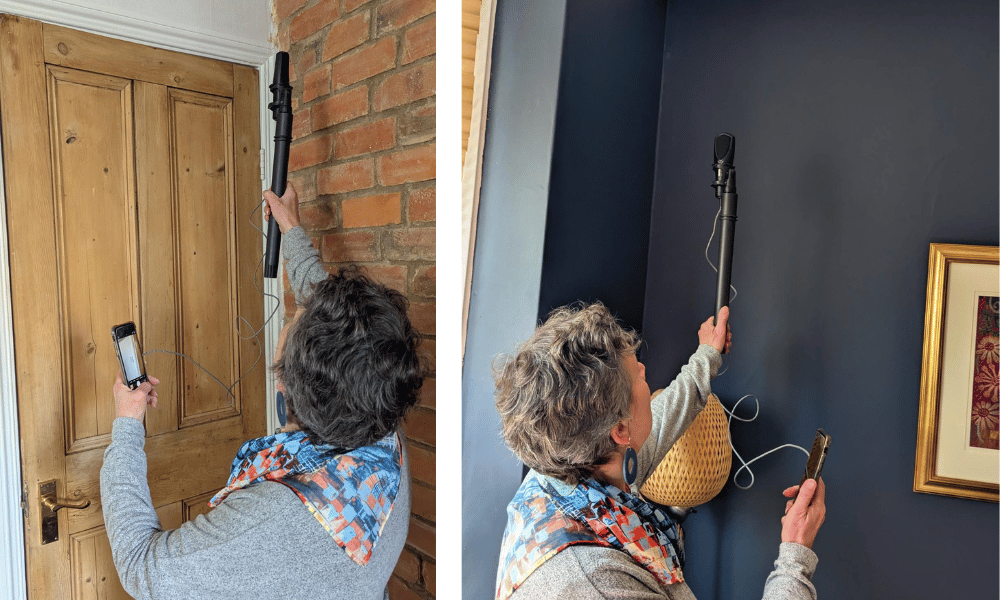Home Surveys to Include Optional Paranormal Inspections.

Due to mounting feedback from UK homebuyers, clients commissioning a home survey could soon ask surveyors to check for paranormal activity alongside property condition, and surveyors will have to include this in their T&Cs.
According to a YouGov study, one in three people in the UK say they have seen a ghost and 40% of people believe that houses can be haunted. This topic became the unexpected discussion point at this year’s Sava Trainer and Assessor Forum, with many homebuyers and surveyors alike now lobbying for the inclusion of an optional – but strongly recommended – paranormal inspection within homebuyer surveys. This addition aims to give homebuyers a complete picture of not just the physical property defects that could be present in their dream home, but also the supernatural residents.
“Over the last decade, we have seen a steady upward trend in the number of homeowners reporting paranormal activity in the home,” said Hilary Grayson, Sava’s Director of Surveying Services. “This is a genuine worry for many homebuyers who deserve to know if they’re going to be sharing their property with an unwelcome guest. The Sava Trainer and Assessor Forum provided the perfect place to discuss topic and consider how it might be included in upcoming revisions to the Home Survey Standard, with valid points coming from all sides.”
The proposed paranormal inspection is quick, easy and utilises much of the same equipment used when carrying out a typical home survey. Surveyors may be expected to:
- Take thermographic readings around the property to detect cold patches – localised temperature drops that are often cited as signs of paranormal activity – where no other natural cause can be found.
- Report instances of dampness where no natural cause can be found.
- Use EMF (electromagnetic field) meters to detect unusual electromagnetic activity which could indicate the presence of a lingering entity.

Armed with this information, buyers can make more informed purchase decisions and could even use this knowledge to negotiate on the agreed purchase price.
“Following discussions at the Sava Forum, an action has now been taken for a representative to formally present this proposal to the RICS working group for consideration,” Hilary comments. “Should this be successful, we know of a number of properties near our headquarters in Milton Keynes which are reportedly haunted and could be utilised for training purposes.”
The surveying community has responded with mixed reactions. Dr Ray Stantz (FRICS), renowned surveyor and president of the Help for Homebuyers Alliance, said: “Whether we personally believe in it or not, this is a concern that many homebuyers have and should be taken just as seriously as woodworm and subsidence. Anything we can do to improve transparency during the sales process is welcome in my book.”
Others are not so sure. Dana Barrett, Director of Grimly & Co. Chartered Surveyors, commented: “We are surveyors, not Ghostbusters. We deal in science and facts. I trained to detect defects not demons.”
Paranormal sceptic, Winston Zeddemore, also weighed in on the subject: “Research suggests that the majority of ghost sightings have occurred at properties with damp and mould issues. We all know the presence of mould in a property can cause respiratory problems, but breathing in fungal spores every day can also cause delirium. Is it a coincidence that poltergeists seem only to be present where the paint is peeling off the walls? I think not.”
In an initial survey of homebuyers, 72% were for the addition of a paranormal inspection. “I’ve got a nervous disposition as it is. I just want to know if I’m moving into a cute Victorian cottage or the Amityville house,” said one potential buyer. “This would make house hunting much easier.”
Paranormal inspections are just one of several items Sava is taking to RICS for consideration by the working group, with firm changes to the Home Survey Standard due to be announced later this year. Surveyors will be able to comment on any changes during the consultation period; however, to share your initial thoughts with the surveying community, you can head to our discussion page.